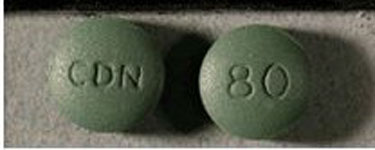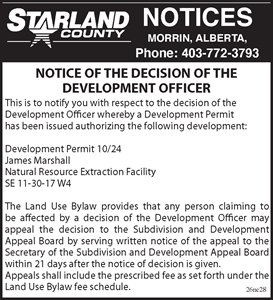
As the entire country begins to get a picture of how deadly the drug fentanyl can be when abused, enforcement and medical personnel are spreading awareness of the risk.
Fentanyl is a synthetic opioid used primary as a treatment for severe pain. In Canada, it is used on a prescription only basis, and typically administered through a slow release patch. However, reports suggest that a powdered form is falling into the hands of users. Between 2009 and 2014, reports show that as many as 665 Canadians have died as a result of fentanyl overdoses.
Corporal Rod Guthrie says while they have not seen the advent of the drug on the streets in Drumheller and area, the detachment is well aware of what it can do.
“So far we are not seeing it,” said Guthrie. “What I am seeing through the news is users not really knowing what they have, or what it can do. You are dealing with a subculture, so you are already dealing with people whose priority is making money, so you don’t know what is in the drug you are getting. With fentanyl, the biggest worry is that it is such a potent thing to begin with, so it is very easy to take too much of it.”
While it may not be rearing its head on the streets in Drumheller, it has made its was way to the Drumheller Institution. Earlier this year an inmate was sentenced for possession of the drug after he was found unresponsive in his cell. On Christmas Eve, December 2011, inmates Nicholas Whynott and Derek Upton were found separately unresponsive in their cells and were pronounced dead at the Drumheller Health Centre. Both were found to have toxic levels of the drug in their systems.
Corporal Guthrie says the RCMP detachment is taking steps to become familiar with the drug. He said Constable Lucas Stewart is heading to training to learn more about fentanyl.
Alberta Health Services Central Zone Medical Officer of Health, Dr. Ifeoma Achebe tells The Mail that in the Zone, from January 1 to June 30 of this year, there have been 19 deaths related to overdose of fentanyl. There has also been 59 emergency room visits related to opioid poisoning.
While she could not break down the numbers community by community, she says that no area of the province is immune.
"It can happen in the rural areas or happen in urban areas, it depends on where the fentanyl goes,” she said.
“Fentanyl is a very strong opiate, 100 percent stronger than other opiates like morphine, heroin, oxycodone, all the ones we know of. In addition to that, the street version that is making its way around Alberta is not pure, it is mixed with so many other things… that makes it even more dangerous,” she said.
This year Alberta Health rolled out a program to provide take-home naloxone for Albertans who are at high risk of opioid overdose. Naloxone is a drug that reverses overdose symptoms of opiates including fentanyl.
The Alberta Community Council on HIV is administering the project. Each kit includes two doses of naloxone, the tools to safely use the drug and step-by-step instructions. Dr. Achebe says the closest available kits are at the Central Alberta AIDS Network office in Red Deer, or from Safeworks in Calgary.
“We know that it can reverse the effects of a fentanyl overdose. When users come in to get it, they are counseled by a nurse to detect early signs of overdose, and if they are able to administer it at the first signs, it can save their life,” she said.

















